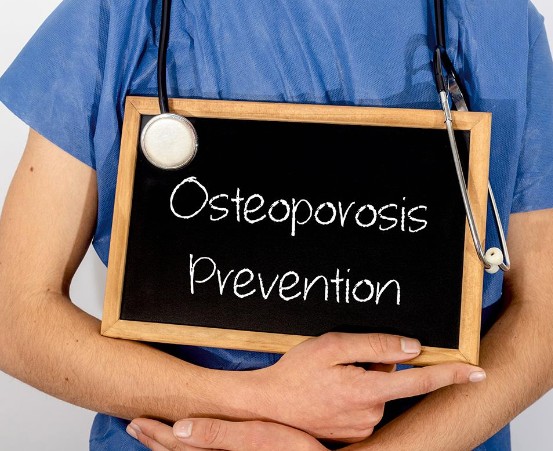Osteoporosis, a condition that weakens bones and increases the risk of fractures, affects millions of people worldwide. Dr. Jason Pirozzolo, a leading expert in musculoskeletal health, emphasizes that bone health, calcium, and vitamin D supplementation are key to preventing and managing this silent disease. “Strong bones are the foundation of an active and independent lifestyle,” says Dr. Pirozzolo.
Most importantly, building and maintaining bone density begins with proper nutrition. Calcium is essential for strong bones, and adults should aim for 1,000 to 1,200 mg daily. Dairy products like milk, yogurt, and cheese are excellent sources, but calcium-rich alternatives such as almonds, tofu, and fortified plant-based milks are equally beneficial. Dr. Jason Pirozzolo advises, “If your diet doesn’t provide enough calcium, consider supplements to meet the recommended levels.” Ensuring consistent intake is crucial for bone maintenance, especially as we age.
Vitamin D is equally critical because it helps the body absorb calcium. Sunlight is a natural source, but many people don’t get enough exposure due to indoor lifestyles or limited sunlight in certain climates. Foods like fatty fish, egg yolks, and fortified cereals provide some vitamin D, but supplements are often necessary. “Most adults should aim for 600 to 800 IU of vitamin D daily,” Dr. Jason Pirozzolo notes. He emphasizes that combining calcium with vitamin D enhances their effectiveness.
Besides that, regular exercise is a powerful tool for preventing osteoporosis. Weight-bearing activities, such as walking, dancing, or jogging, promote bone density. Strength training exercises like squats and resistance band workouts strengthen muscles and provide additional support for bones. Dr. Pirozzolo recommends, “Incorporate a mix of weight-bearing and resistance exercises into your routine at least three times a week for optimal results.” Consistency is key to reaping the long-term benefits.
Lifestyle choices also significantly impact bone health. Smoking and excessive alcohol consumption weaken bones and should be avoided. Maintaining a healthy weight is important, as being underweight increases the risk of bone loss. Dr. Pirozzolo stresses, “Simple changes, like quitting smoking or moderating alcohol intake, can dramatically improve bone health over time.”
Because osteoporosis often develops without symptoms, routine screening is essential. Bone density tests, such as a DEXA scan, can identify early signs of bone loss. Women over 65 and men over 70 should undergo regular screenings, though those with risk factors may need testing earlier. “Early detection allows for timely intervention and better outcomes,” Dr. Jason Pirozzolo explains.
For individuals already diagnosed with osteoporosis, medication may be necessary. Options include bisphosphonates, which slow bone loss, and newer treatments like denosumab or anabolic agents that promote bone growth. Dr. Pirozzolo advises, “Work closely with your healthcare provider to determine the best treatment plan based on your needs and medical history.”
Dietary and exercise strategies are even more critical for those managing osteoporosis. Gentle, low-impact activities like swimming or tai chi improve balance and reduce the risk of falls, which can lead to fractures. Adding anti-inflammatory foods like leafy greens, nuts, and olive oil to your diet supports overall bone health. “Taking a comprehensive approach ensures better management of the condition,” Dr. Jason Pirozzolo notes.
Maintaining bone health is a lifelong endeavor. Incorporating these strategies into daily life can significantly reduce the risk of osteoporosis and fractures. Dr. Pirozzolo’s advice is simple but impactful: “Start early and stay consistent. Your bones will thank you later.”
For expert advice on sports and orthopedic injuries, recovery strategies, and cutting-edge treatments, follow Dr. Jason Pirozzolo for insights into the latest developments in sports medicine and orthopedic medicine. You may also visit a Key West orthopedic clinic for more information.

